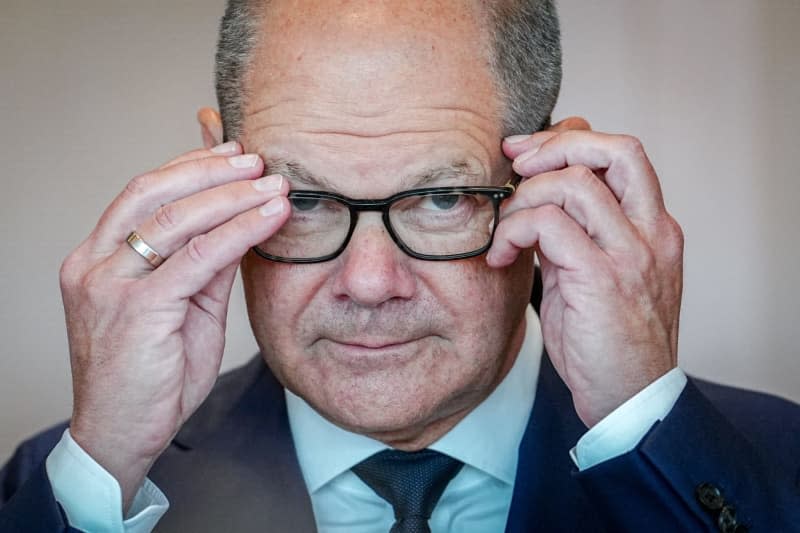June’s Purchasing Managers Index (PMI) data release shows signs of economic acceleration, with a reading of 54.6 surpassing economist expectations of 53.5. JPMorgan Asset Management Global Market Strategist Jack Manley joins Catalysts to discuss his market (^DJI, ^IXIC, ^GSPC) outlook in light of this data.
Manley expresses frustration with the prevailing market theme of “good news is bad news,” stating: “I think we have totally lost the plot of what interest rates are all about.” He emphasizes that the Federal Reserve does not desire a recession.
“We aren’t supposed to be rooting against the economy accelerating, that is a good story,” Manley tells Yahoo Finance.
Regarding the Fed’s approach to rates, Manley observes that the Fed “is not always data dependent, they rely a ton on forward guidance.” He criticizes the central bank’s handling of monetary policy post-pandemic, suggesting that instead of speculating on the Fed’s actions, individuals should “focus on more tangible” outcomes.
“I don’t know what’s gonna happen to rates over the next six months. I don’t know what’s gonna happen to the data over the next six months, but I do have confidence that rates will move lower over that longer-term time period,” he tells Yahoo Finance.
For more expert insight and the latest market action, click here to watch this full episode of Catalysts.
This post was written by Angel Smith
Video Transcript
The latest manufacturing data out this morning, showing signs of the economy gaining momentum for more on what that could mean for future Fed decisions.
In the broader market, we have Jack Manly on said he is JP.
Morgan’s asset management global market strategist.
Jack, thank you so much for coming in studio with us.
Talk to me about this PM I data coming in above expectations.
How much of a driver is that going to be of the market?
I think markets seem to not be really thrilled with the PM I data, but I I’m so frustrated Madison with this idea that good news is bad news.
Like, I think that story is so played out at this point, and I think the problem is that we have totally lost the plot on what interest rates are all about.
And we have convinced ourselves that the Fed wants a recession.
It does not.
That is not in its mandate.
The Fed does not want to crush the economy if it does not have to.
We’re not supposed to be rooting against the economy.
Accelerating that is a good story.
And as long as the inflation data remain relatively uh in the right place, moving down to that 2% target at some point.
As long as the labour market stays reasonably hot.
I think that the Fed is going to be able to do what it wants to do this year, which is ultimately cut interest rates.
So I’m not paying too much attention to the PM.
I SI don’t care that they beat.
I don’t think it’s a big story, but that’s what markets are all focused in on.
But let’s talk about the kind of tenor of your tone on the Federal Reserve right now, because it’s it’s a fascinating point.
And I think it points to this question about the Fed losing the plot and not really having a driving thesis behind Just oh, we’re data dependent.
But what does that actually mean?
Yeah, II, I wonder if the Fed is actually data dependent?
Frankly, I mean, I have II.
I don’t think the Fed has done a particularly good job of managing monetary monetary policy at all throughout this entire cycle, and I think you have to rewind the clock a little bit right back to 2022 when they first started doing stuff, but it blows my mind that quantitative easing lasted as long as it did.
That rate stayed at zero for as long as they did.
The US economy was fully out of the covid slump by the fourth quarter of 2020.
Why were we remaining so accommodated for so long?
If the Fed were truly data dependent, those rate hikes would have happened a year earlier.
The end of QE would have happened a year earlier.
The Fed is not always data dependent.
They rely a tonne on forward guidance, which is why they put out the sum of economic projections like the one that we we got last week.
So I’d rather than, uh rather than trying to, like, game out exactly what the Fed is gonna do.
I think it’s really, really hard to get inside their heads.
And of course, we don’t know what the data are going to look like over the next several months.
I’d rather focus in on some things that I think are a little bit more tangible, a little bit more predictable as investors Fed’s probably not gonna hike this year, right, so we can kind of put that off the table.
They seem more likely than not wanting to cut at least once.
I don’t know if it would be more than that, but at least once this year, once they start to cut, they’re not going to stop cutting immediately.
They’re going to continue to cut, and wherever they land is going to be a whole lot lower from where we are right now and a whole lot higher than zero, which is where we were for basically the last 15 years.
That allows you to sort of put aside a lot of the short term uncertainty.
I don’t know what’s gonna happen to rates over the next six months.
I don’t know what’s gonna happen to the data over the next six months, but I do have confidence that rate rates will move lower over that longer term time period, and that, I think gives me a little bit more confidence.
It’s in the outlook for stocks or bonds
Signup bonus from





